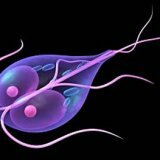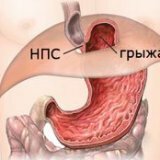Acute gastroenteritis: symptoms and treatment

Acute gastroenteritis is an infectious disease that is acute and manifests itself in symptoms like acute intestinal infection. The causative agent of this disease is a spherical particle containing in its composition ribonucleic acid and in size from seventy to seventy five nanometers. The disease of acute gastroenteritis is characterized by flash development. It affects both newborns and elderly people. Its main distribution gets seasonally. Infection by a person occurs both through water and through food, often outbreaks of this disease are typical for the summer period at sea, where water can be contaminated with all sorts of feces.
Symptomatology and clinic of the disease
The duration of the incubation period of this disease can vary from several hours to several days. The disease has acute and rapid development, for which characteristic signs are: diarrhea, then the process of indomitable vomiting. The process of defecation is frequent, abundant and has a watery character, often foamy and having a very sharp odor. In the stomach there is a characteristic discomfort, accompanied by strong peristalsis, loud rumbling and pains in the abdomen. Often the temperature does not exceed normal, but in severe cases there may be hypothermia. Hyperemic zev, palate, edematous tongue. There may be a drop in blood pressure, a decrease in heart rate. The predominant symptoms are the defeat of the digestive system. In the umbilical and abdominal region, palpation is characterized by a certain soreness. Partial dehydration of the body occurs and, as a consequence, a decrease in body weight, which is especially dangerous for newborns and small children. As for the blood counts, in the beginning it is increased leukocytosis, at the end there is an increase in eosinophils. Symptoms and treatment of acute gastroenteritis are numerous, and therefore it is necessary to closely monitor the patient.
Symptoms of gastroenteritis, such as vomiting, diarrhea, bloating, suggest that you should immediately seek help from a doctor. Particular attention should be paid when appearing in the feces of blood, increasing the temperature above 38 ° C, loss of consciousness and dizziness, if they are available, you should seek emergency medical help.
Diagnosis and differential diagnosis
Diagnosis of acute gastroenteritis is complex and only on the symptoms of the patient is not carried out. The attending physician assigns the necessary analyzes and examinations until a virus or viral antigen in the feces is detected and specific antibodies in the blood serum are detected.
Based on clinical data, epidemiological anamnesis and laboratory results, a differential diagnosis is made. Especial importance in the formulation of the correct diagnosis is epidemiological situation. Because the disease usually flares up territorially and spreads through contact with already infected people. Because of its different etiology, acute gastroenteritis can only be confirmed by so-called laboratory tests, in particular, a virologic examination of stool or serum for serological analysis. This all needs to be done to exclude variants of similarity with such diseases as cholera, salmonellosis, dysentery. After all, all these diseases have a similar symptomatology, which can lead to an incorrect diagnosis and, as a consequence, the appointment of an incorrect treatment, which will lead to a protracted recovery process and the occurrence of certain complications.
Treatment of this disease
If you find yourself or your loved ones first symptoms of acute gastroenteritis, you need urgently refuse to take any food, which will relieve the stomach of unnecessary activity. Increase the maximum reception of liquid in the form of juices, water, kissels, broths, compotes. If nausea is absent or partially disappears, then a small amount of cooked rice, bananas or crackers is possible. Treatment of gastroenteritis completely excludes the use of antibiotics, since it can provoke the emergence of dysbiosis. One of the important roles in the treatment of acute gastroenteritis is occupied by both enveloping and astringent preparations and agents, such as: tanalbine, thebalbium, bismuth nitrate, and from medicinal herbs - serpentine, alder, St. John's wort. If the disease has complications, then it is necessary to connect intravenous administration of protein hydrolysates and plasma, and possibly the connection of anabolic steroid hormones.
Second place in importance in the treatment of this disease is the right diet. First of all, the diet should include proteins of animal origin, and this is beef boiled, chicken, fish, cottage cheese. Also include foods containing easily digestible fats and carbohydrates. And completely to exclude from a diet the products containing a fat.
If diarrhea persists, try eating black bread, figs, prunes. In this case, thoroughly chewing. Do not forget that all food at this time should be warm. In the diet include mashed soups, soups, mashed potatoes, porridges, steam cutlets, which favorably affect the work of the entire digestive system. Very useful in the treatment of gastroenteritis, physiotherapeutic procedures are, first of all, warming compresses, inductothermy, diathermy.
Of particular importance is also the prevention of both acute gastroenteritis and ordinary gastroenteritis. This is primarily a systematic sanitation of the oral cavity, a clearly established diet, it is desirable to periodically perform the procedure of deworming, full compliance with sanitary and hygienic standards, both cooking and storing food.
In summary, acute gastroenteritis, symptoms and treatment, which has been fairly well studied and described in many medical treatises, is very dangerous for the lives of both children and adults and requires constant monitoring of the body.



